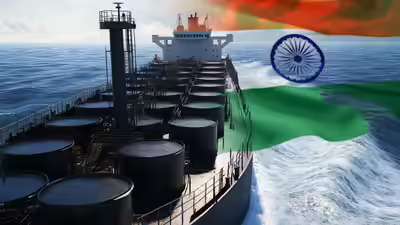The U.S. has intensified calls for its European allies to expand sanctions on countries that continue purchasing Russian oil, with Treasury Secretary Scott Bessent stating that coordinated measures could accelerate the collapse of Russia’s economy and bring Russia to the negotiating table over Ukraine. While India was not named, it remains the second-largest buyer of Russian crude after China, placing it at the center of this policy debate.
The development comes despite a recent thaw in relations between President Donald Trump and Prime Minister Narendra Modi. Trump has described U.S.–India ties as a “very special relationship,” yet his administration has already imposed 50 percent tariffs on Indian goods, combining reciprocal trade duties with additional levies tied to oil imports from Russia. The contradiction reflects the challenge of balancing India’s importance as a partner in Asia with Washington’s determination to limit Russia’s revenue streams.
For Europe, the issue poses a strategic dilemma. Supporting U.S. demands would align Brussels more closely with U.S sanctions regime, but it risks straining relations with India at a time when the EU is also seeking stronger economic and security engagement in the Indo-Pacific. Conversely, hesitation could expose fault lines within the transatlantic alliance and weaken the broader effort to constrain Russia. Looking forward, the debate may harden into a critical test of global alignments. If sanctions extend to India, New Delhi could respond by deepening ties with Russia and China, reshaping strategic balances across Eurasia and complicating Western efforts to isolate Russia.

